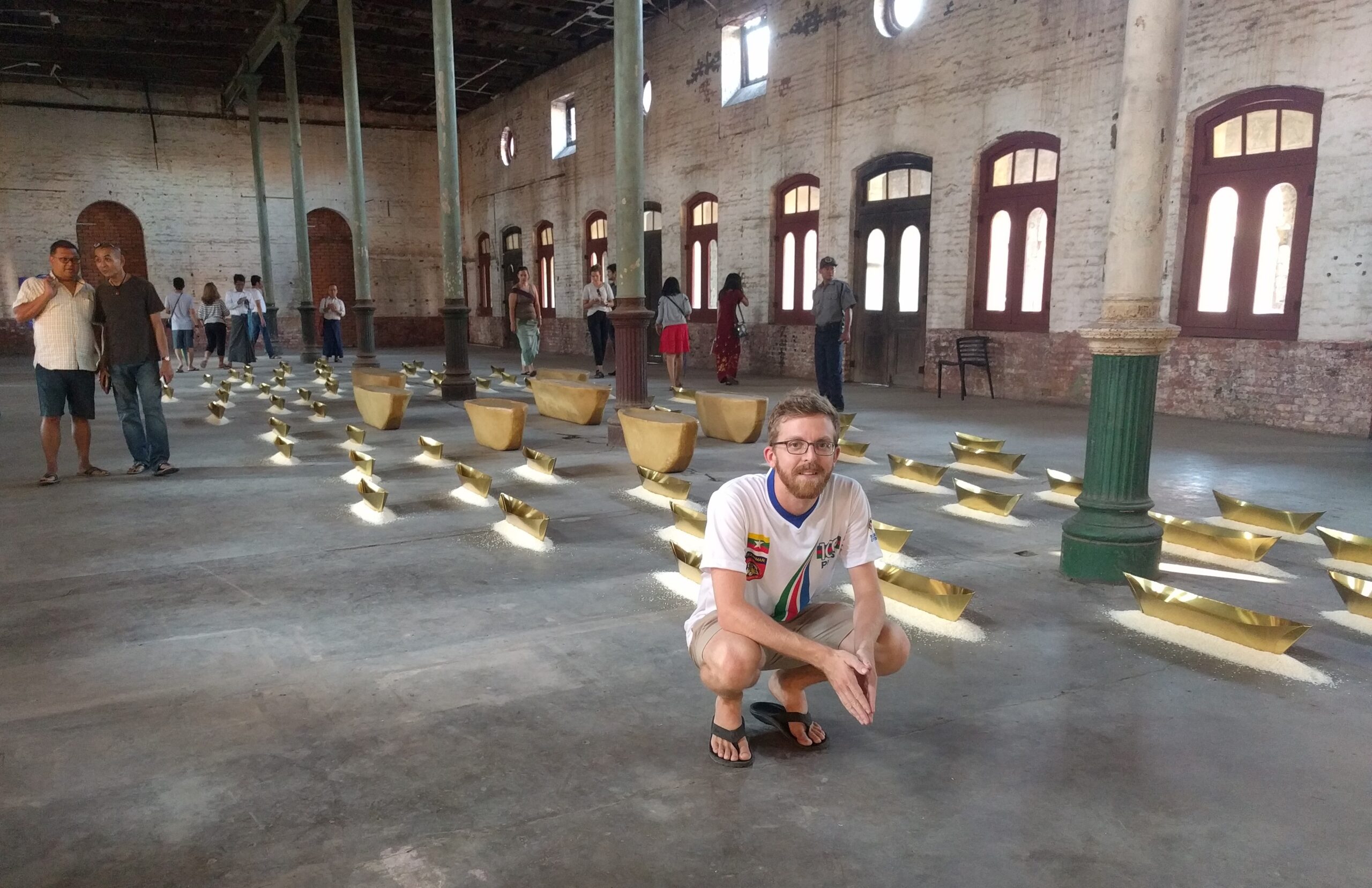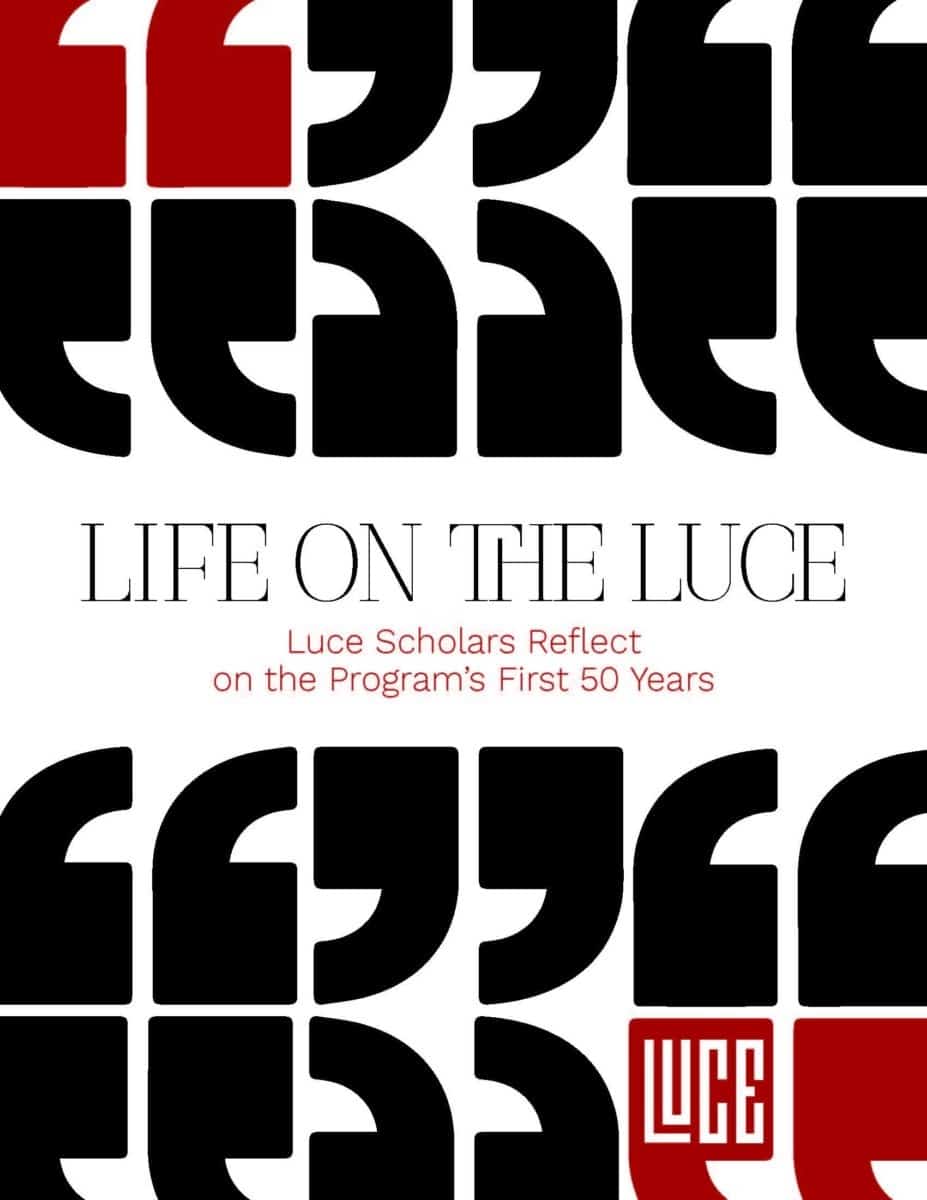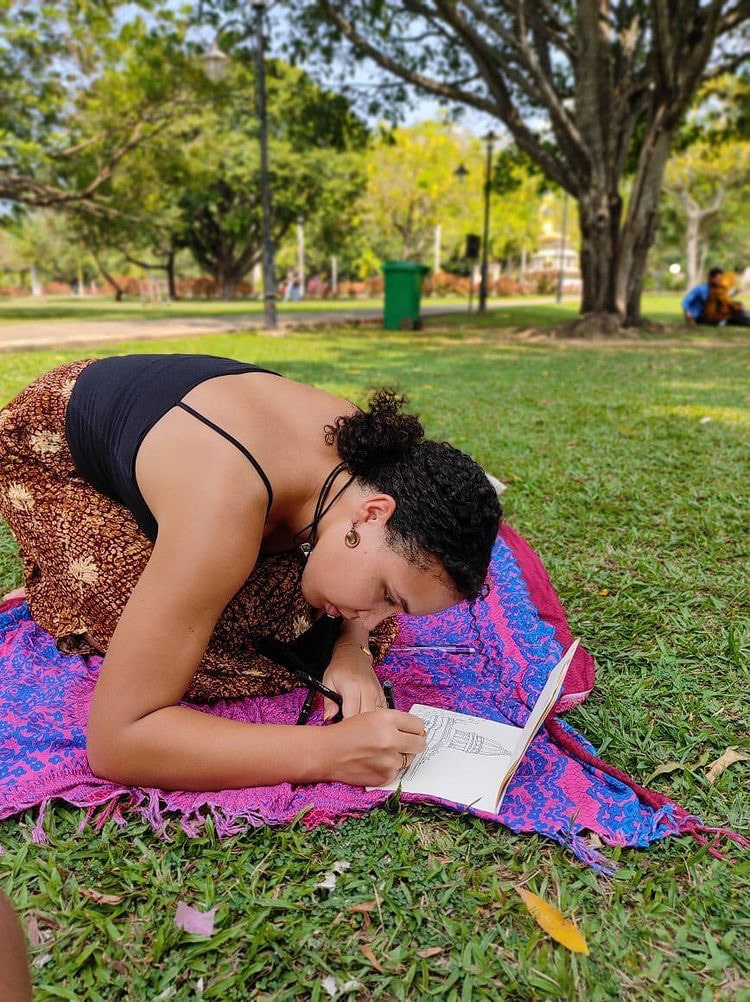I first smell my neighborhood come to life—the frying garlic and chilies wafting up from the ground floor kitchen of the old Brutalist public housing unit. Then I hear it. Entrepreneurial salespeople bellow through the streets, selling breakfast parathas, beautiful bouquets of freshly cut flowers, or long bamboo poles with which to hang laundry. Then, I look out the window: men slurping mohinga (fish soup) in the tiny teashop across the street; robed monks (saffron for men, pink for women) and neighbors standing in parallel lines to exchange rice and prayers; the seamstresses in the market next door pumping sewing machine pedals in their mattress-sized shops. Finally, I step outside and feel it. Pounding rain or glaring sun, always accompanied by stultifying humidity and the wonder of how lucky I am to live in Yangon, Myanmar, a place of frenetic and complex political, economic, and social change.
I chose to make a home in Miminaing because it seemed quiet and green. I learned later that the neighborhood was built as a public housing complex, but not in the way I had imagined. Sandwiched between the national theater and Yangon General Hospital, perched just above downtown, it was a place for high-ranking civil servants to secure long-term leases. When I timidly introduced myself in Myanmar to another Building 16 resident, the elderly man stared at me for 10 seconds and then in perfect English said, “Yes, yes, come in, come in.” Under an oil painting of his younger self, he told me how he lived and trained on an army base in the U.S. as a young general. (Until just recently, “civil servant” and “junta member” were nearly synonymous.) When I wake up at the designated time to pump water into the apartment (6:00–7:00 a.m.), I wonder who else is watching their overflow pipes at the same moment. What are their stories?
At the end of October, the Luce Scholars gathered in Thailand for early assessment meetings. Going into my individual meeting, I felt a little hangdog. I was still finding my place at the office and had only begun to develop the blurriest understanding of the Myanmar justice system. I could barely hold onto the beguiling Myanmar alphabet, and on bad days, I felt almost preverbal. (Case in point: I noticed a tent set up near my house with a homemade signboard the month before. I snapped a photo, went to a coffee shop, and laboriously translated what I thought was a birthday party announcement for a 70-year old man. When I showed it to my language teacher, self-satisfied, she let me know it was actually a funeral observance. Good thing I didn’t show up with a present.)
At the meeting, I was reminded that the bulk of my Luce experience was still ahead and that the struggle to understand was the essence of the Luce year. My cohort thrilled me with their observations on life in such different corners of Asia, and we had long, cathartic conversations on the challenges and rewards of trying to responsibly work and learn as conspicuous Westerners in our respective environs. I returned to Yangon re-energized, and I have spent the last few months patiently building trust and watching my personal and professional efforts grow.
Before this year, I had traveled overseas, but always in brief spurts and never long enough to settle in. I would delay going to health check-ups or investing in a home or beginning to learn a language since a return home was just around the corner. One of my motivations for applying to the Luce Scholars Program, I told others, was to “not be able to make excuses for not knowing things.” Now, at the halfway point, that oft-repeated aspiration has been inverted: not knowing needs no excuse. The unknown is an integral part of my Luce year, even as I learn to read Myanmar’s rich tapestry.


